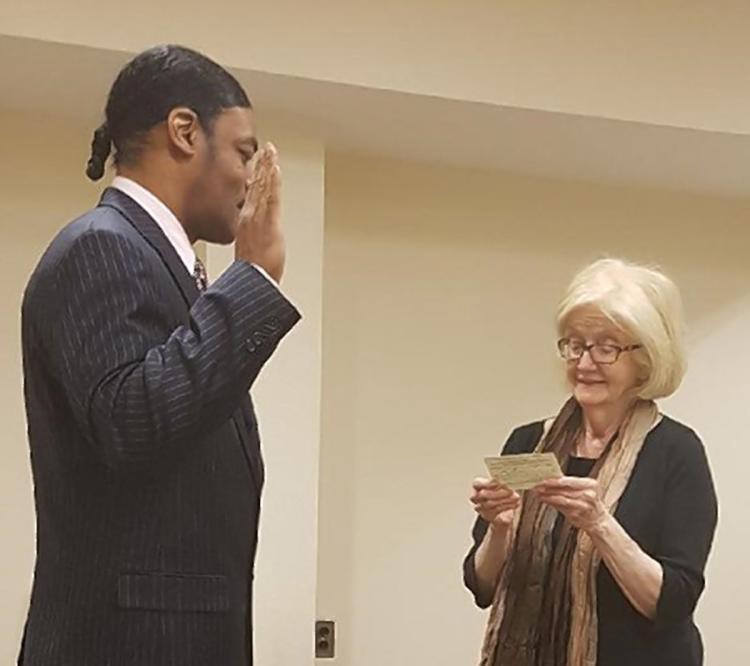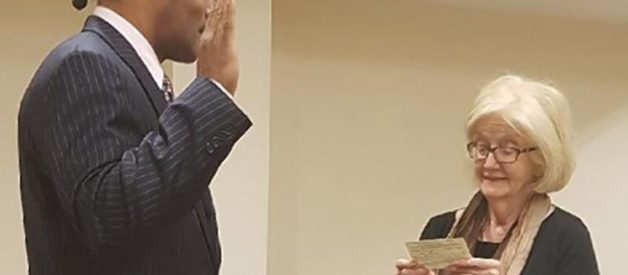
The Newark, New Jersey, law firm of Hunt, Hamlin & Ridley has tapped the legal services of Isaac Wright, Jr. ? once wrongfully accused and convicted of being the mastermind behind one of the largest drug distribution networks in the New York/New Jersey areas ? to act as co-counsel in the defense of Isaiah Bell.
Wright?s remarkable journey to gain his freedom and his legal talents are slated to be depicted in a TV series based upon his life and produced by 50 Cent. Today, they are slated to be on display in defense of Bell, the brother of an NFL player with the Detroit Lions, who is accused of first degree murder in the stabbing death of James Kargbo. As co-counsel, Wright?s representation of Bell will be backed by unique experiences no other attorney can lay claim to ? an experience that began in the very same county and courthouse Wright will be representing Bell.
In 1991, Wright was tried in a Somerset County courtroom and convicted under New Jersey?s drug kingpin law. Wright represented himself at trial and, while serving a Life sentence in prison, he continued to study the law and oversee his own appeal. Over the next several years, Wright also worked as a prison paralegal and won the freedom and reduced sentences of over 20 inmates, many serving life sentences. Some of his legal arguments made new law that lawyers now argue and courts follow.
Attorney Gilbert G. Miller, then Assistant Somerset County Prosecutor appointed to oppose Wright?s appeals and other court action, said it best: ?I found Mr. Wright to be highly intelligent and?a better brief writer than most attorneys I have encountered. I was most impressed with Mr. Wright?s ability as a legal strategist. Mr. Wright developed the legal strategy and authored a defense pro se brief in an attack on the king-pin jury instruction in State v. Alexander, 136 N.J. 563 (1994). Mr. Wright?s arguments prevailed in Alexander. Mr. Wright used his success in Alexander to have his own kingpin conviction reversed.?
After Wright?s kingpin conviction was vacated, several other convictions remained that carried sentences totaling over 70 years and kept him imprisoned. To overcome this obstacle, Wright succeeded in doing what the most experienced attorney would never even attempt ? he extracted a confession from a veteran police officer. During a 1996 evidentiary hearing, Wright cross-examined detective James Dugan, convincing Dugan to break the code of silence and confess to police misconduct in his case. Dugan?s confession opened revelations of wide and systematic misconduct and cover-up in Wright?s case, pointing the finger specifically at Somerset County?s head prosecutor Nicholas L. Bissell, Jr.
Bissell was fingered as being the orchestrator of the misconduct, directing police officers to falsify their police reports while he personally dictated the false testimony of witnesses and made secret deals with defense attorneys to have their clients provide false testimony to jurors that Wright was their drug boss and they had also pled guilty and were facing prison time. Truth is, those stories were fabricated and none of the people who testified faced even a day in jail.
Dugan pled guilty to official misconduct in order to escape prison and Judge Michael Imbriani, who oversaw the trial, was removed from the bench and was sent to prison on theft charges. Bissell, after learning of Dugan?s confession on TV news, took flight with federal authorities in pursuit. As police were kicking in the door of his Las Vegas hotel room, Bissell shot himself in the head, committing suicide.
Wright?s charges were dismissed after spending over 7 years in prison. He then spent another seven years pursuing his law degree and got his undergraduate degree in 2002. He began law school in 2004 and graduated from Saint Thomas University School of Law in 2007. The law school renamed its cafeteria in his name. Wright then passed the New Jersey Bar in 2008, but spent the next nine years being investigated by the New Jersey Bar?s Committee on character before being granted admission to the bar by the New Jersey Supreme Court on September 27, 2017, where he was officially sworn in as a licensed attorney.
?I went to law school for one reason and one reason only,? says Wright. ?To slay giants for a price. And if the giant is big enough and the cause is important enough, I?ll do it for free, especially when it involves helping those who cannot help themselves.?
Wright is scheduled to be in Court for the first time in the Bell case on December 1, 2017. He is currently Of Counsel with the law firm Hunt, Hamlin & Ridley located in Newark, New Jersey.


